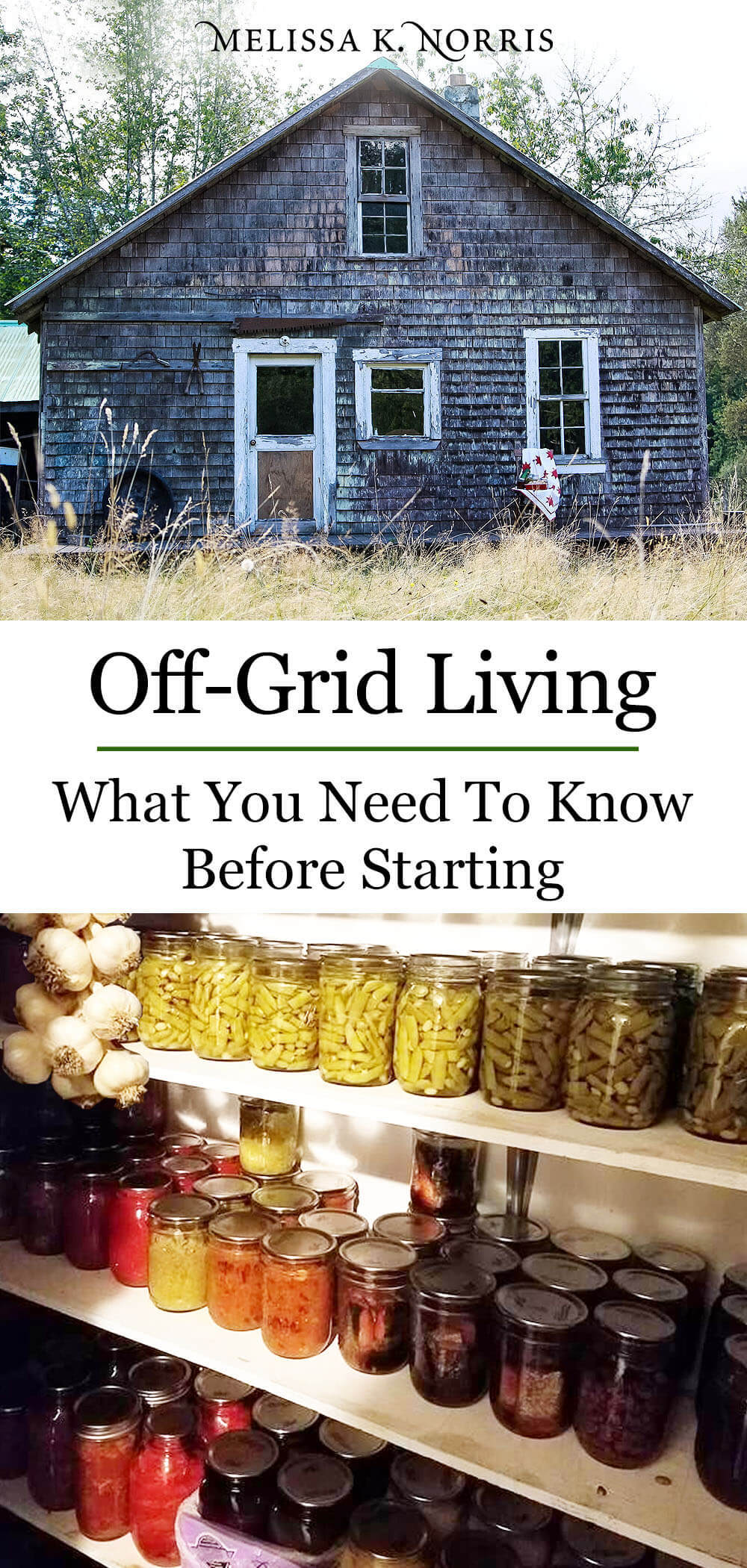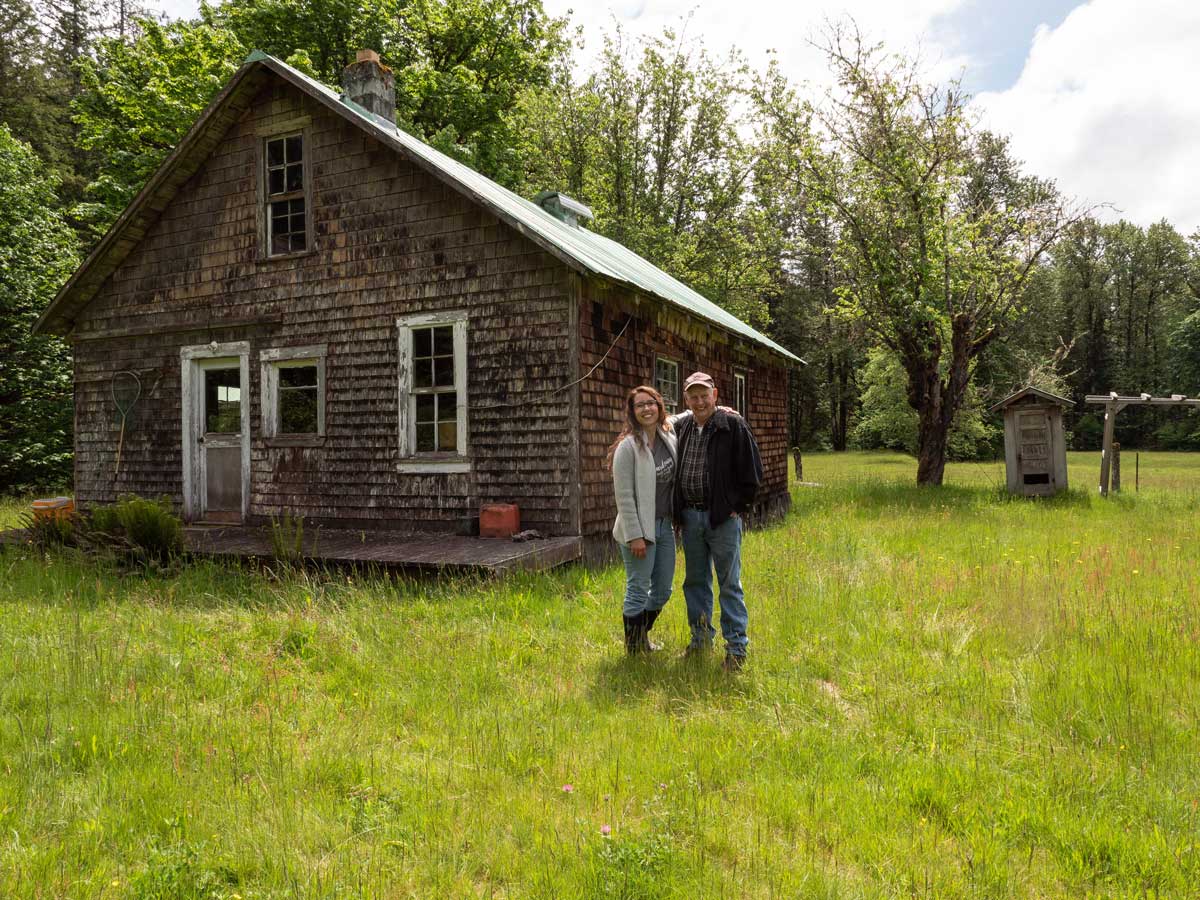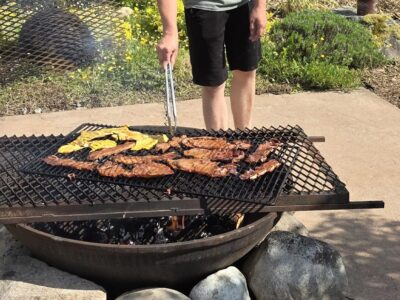Living off-grid is considered a homesteading pioneer way of life. In our country and according to your State’s law, you can raise your family in a home using alternate sources of power and water to become a part of this self-sufficient growing community.
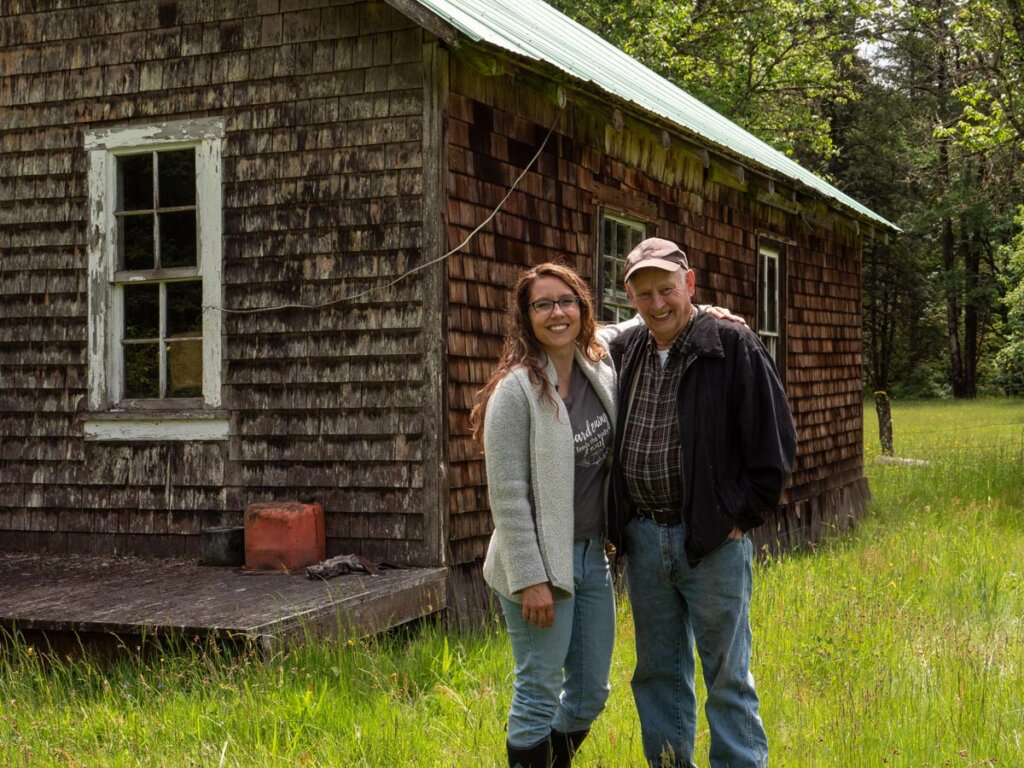
Note: This blog post has been updated to include multiple podcast episodes on off-grid living. Over the years, I’ve interviewed multiple homesteaders living off-grid, so download each of these podcasts and listen to them at your leisure! Here’s to embracing off-grid living!
Listen to the full episodes of the Pioneering Today Podcast, where we don’t just inspire you but give you the clear steps to create the homegrown garden, pantry, kitchen and life you want for your family and homestead.
- Episode #143 Tips for Homesteading Off-Grid & Life w/out a Fridge or Running Water – Interview with Teri Page of Homestead-Honey.com.
- Episode #183 Off Grid Living: What You Need to Know – Interview with Off Grid with Doug & Stacy.
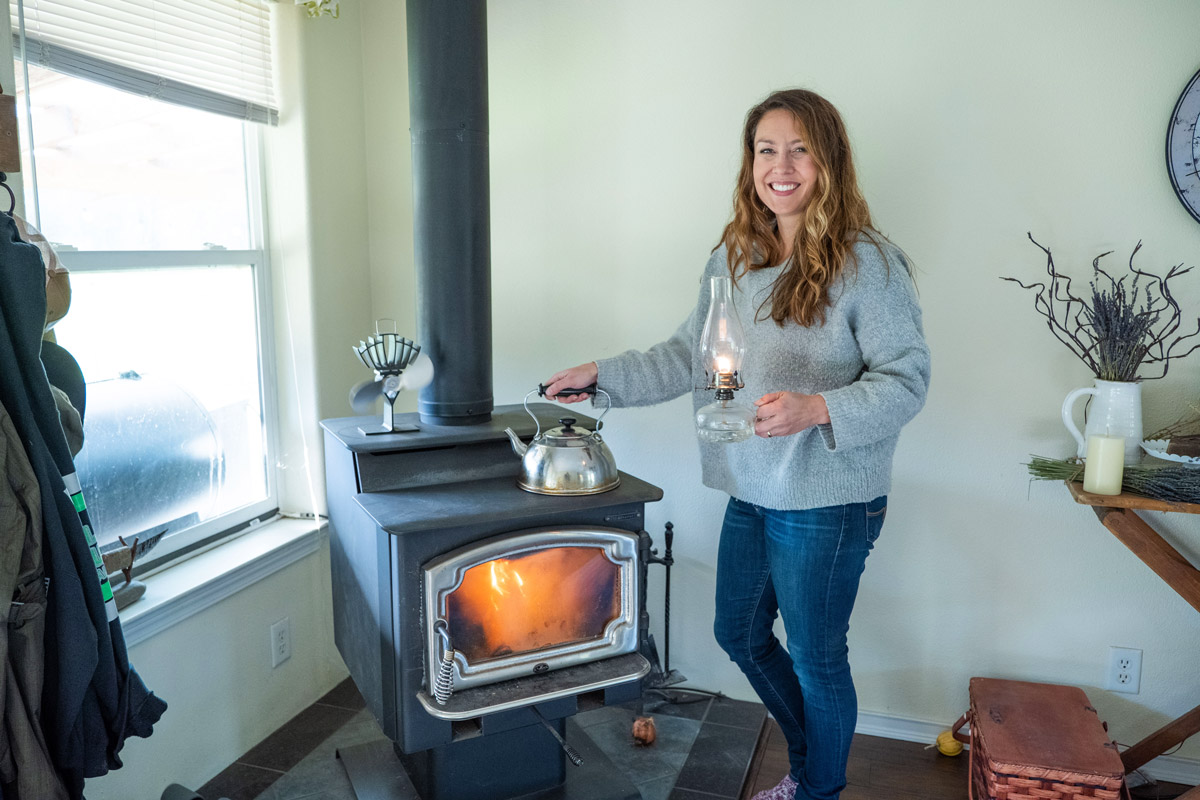
Table of Contents[Hide][Show]
- Realities of Living Off the Grid
- How Much Money Do I Need to Live Off-Grid?
- Is Off-Grid Living Worth It?
- Is It Illegal to Live Off the Grid in America?
- What State Is Easiest for Off-Grid Living?
- Embracing Sustainable Energy: Solar, Wind, and More
- Composting: Nature’s Recycling System
- Alternative Waste Disposal Methods: Composting Toilets
- Food Preservation Off the Grid
- Building and Living in an Off-Grid Home
- Navigating Local Laws and Community
- Other Posts You May Enjoy
Realities of Living Off the Grid
When the topic of off-grid living is approached, many ask, “Can you realistically live off the grid?” How to buy a homestead-what to look for is a start when choosing to live off the grid. Essential homestead skills teach you how to live a more sustainable lifestyle for off-grid living.
Growing your own food and cooking on a wood stove while implementing sustainable practices like composting contributes to a healthier lifestyle and promotes self-sufficiency, which in turn keeps you prepared on the homestead for life’s curveballs.
Embracing off-grid living allows individuals to disconnect from public utilities and, depending on the climate, use these ten ways to keep warm without electricity and keep your house cool in summer without air conditioning, relying on sustainable and self-sufficient systems.
Living independently from public utilities allows for a deeper connection with nature and a reduced environmental impact. It also offers the opportunity to live a simpler, more intentional lifestyle. While it does come with its challenges, the rewards of off-grid living are plentiful.
By generating your own power through solar panels or wind turbines, you can minimize your carbon footprint and reduce energy expenses in the long run. Preparedness and mindfulness is the landmarks of pioneer homesteading. So, yes, off-grid living is realistic, and many live this way

How Much Money Do I Need to Live Off-Grid?
Living off the grid is an exciting prospect that requires careful financial planning. While the initial setup costs might seem daunting, the long-term savings and independence make it a worthwhile investment for many people.
When considering the financial aspects of off-grid living, there are a few key factors to keep in mind:
- Initial Setup Costs – The first step to living off the grid is to establish your own self-sufficient system, which can involve purchasing or installing various equipment and amenities. These initial setup costs can vary depending on your location, the size of your property, and the level of self-reliance you aim to achieve.
- Ongoing Expenses – Once your off-grid system is up and running, there will be ongoing expenses to consider. These can include maintenance costs, fuel or energy source replenishment, and occasional upgrades or replacements of equipment. It’s important to factor these expenses into your long-term budget planning.
- Long-term Savings – One of the significant advantages of living off the grid is the potential for long-term savings. You can significantly reduce or eliminate monthly utility bills by relying on renewable energy sources, such as solar panels or wind turbines. Additionally, growing your own food can save money on groceries while promoting a healthier and more sustainable lifestyle.
While the upfront costs may require some financial planning and adjustments, living off the grid can ultimately lead to a more self-sufficient and cost-effective lifestyle.
| Expense | Average Cost |
| Solar Panel Installation | $10,000 – $30,000 |
| Wind Turbine Installation | $5,000 – $20,000 |
| Rainwater Harvesting System | $2,000 – $10,000 |
| Composting Toilet | $1,000 – $5,000 |
| Gardening Supplies | $500 – $2,000 |
Note: The above costs are estimates and can vary depending on location, system size, and individual preferences.
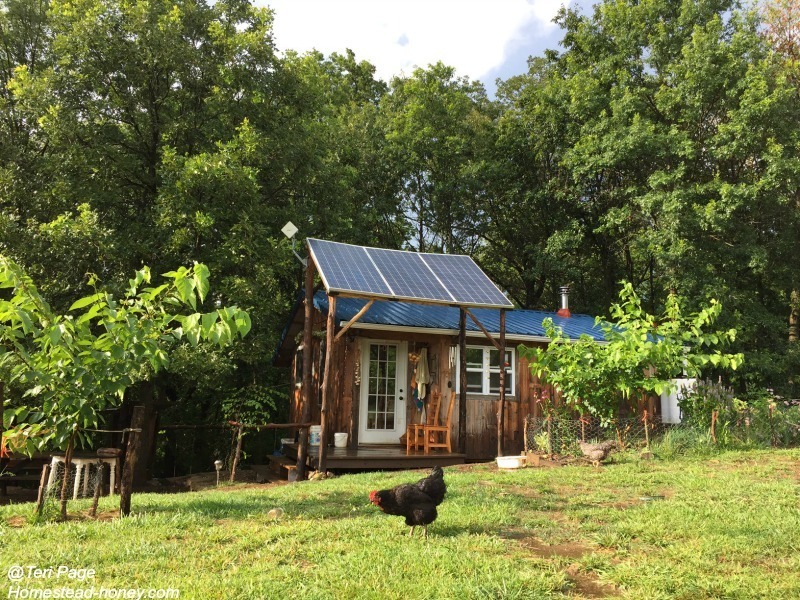
Is Off-Grid Living Worth It?
When considering the switch to off-grid living, it’s essential to weigh the benefits and drawbacks to determine if it’s truly worth it. Transitioning to a sustainable lifestyle can positively impact the environment and your overall well-being.
- Environmental Impact – One of the primary motivations for embracing off-grid living is its positive effect on the environment. By reducing reliance on traditional energy sources and adopting renewable alternatives such as solar power, you can significantly decrease your carbon footprint. This sustainable approach contributes to the preservation of our planet for future generations.
- Self-Reliance and Independence – Living off the grid empowers individuals and families to become self-reliant. You become less dependent on external resources by generating energy, growing food, and implementing sustainable practices. This self-sufficiency brings a sense of freedom and control over your life, fostering a greater sense of independence.
- A Simpler Lifestyle – Off-grid living allows you to simplify your life and focus on what truly matters. By disconnecting from the constant noise and distractions of the modern world, you can find peace and fulfillment in the simplicity of nature. Embracing a minimalistic lifestyle reduces stress and encourages mindfulness and appreciation for the natural world.
While off-grid living offers numerous advantages, it’s crucial to consider the potential challenges and drawbacks. Factors such as initial setup costs, limited access to certain amenities, and the need for ongoing maintenance should be carefully evaluated before making the decision to go off-grid.
However, for those seeking a more sustainable and self-sufficient life, the benefits often outweigh the challenges. As you weigh the advantages and disadvantages, consider the potential positive impact on both your life and the world around you.
Ultimately, whether off-grid living is worth it depends on your values and priorities. It’s a transformative journey that requires careful planning, adaptability, and a commitment to sustainable practices.
Is It Illegal to Live Off the Grid in America?
When considering the lifestyle of off-grid living, it’s important to understand the legal implications that may vary across different states in America. While living off the grid itself is not illegal, there are regulations and restrictions that exist, which vary from state to state. Navigating these laws can be essential to ensuring a smooth and enjoyable off-grid experience.
Some states have embraced off-grid living and created regulations that support self-sufficiency and sustainable living practices. These states prioritize the freedom to live independently from public utilities and encourage individuals to adopt renewable energy sources such as solar panels and wind turbines.
On the other hand, there are states that impose stricter regulations on various aspects of off-grid living, such as building codes, water usage, and waste disposal.
Understanding the legal landscape is crucial before embarking on your off-grid journey. It is recommended to thoroughly research the specific regulations in the state where you intend to live off the grid. Familiarize yourself with the local laws regarding zoning, building permits, renewable energy incentives, water rights, and waste management.
Always consult with local authorities, building departments, and legal professionals to ensure compliance with the laws in your chosen state. By understanding and abiding by the regulations, you can enjoy the freedom and independence of off-grid living without any legal concerns.
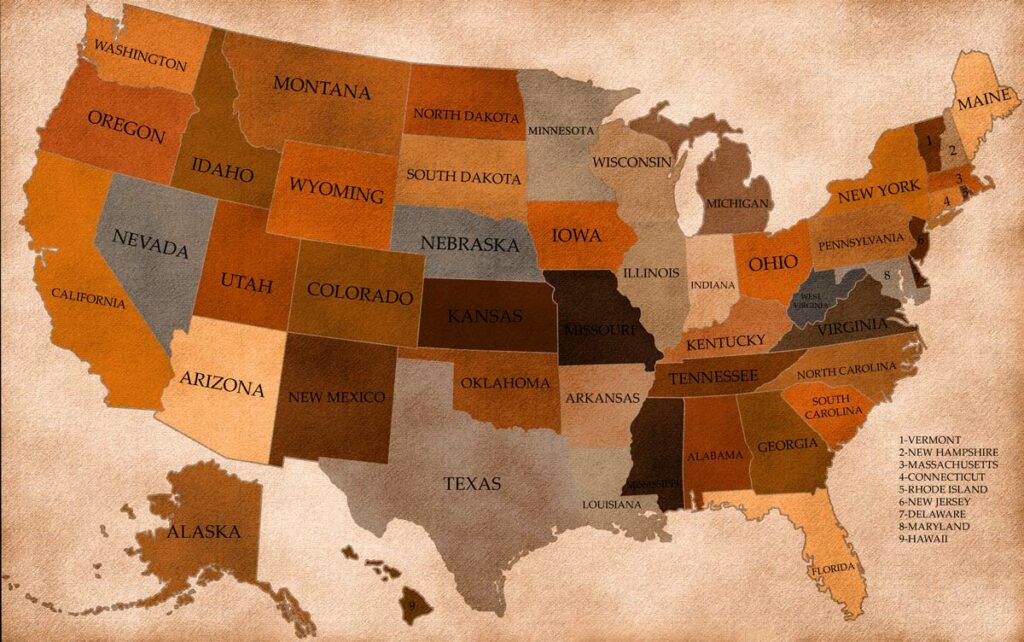
What State Is Easiest for Off-Grid Living?
Choosing the right state can make all the difference when it comes to off-grid living. Each state has regulations, resources, and opportunities that can support or hinder your self-sufficient lifestyle.
Here are some states that are considered more friendly and accommodating to off-grid living:
- California – Known for its progressive stance on renewable energy and sustainability, California offers a wide range of incentives and programs for off-grid living.
- Colorado – With its abundant sunshine and favorable solar policies, Colorado is an ideal state for harnessing solar energy and living off the grid.
- Oregon – Offering a strong off-grid community and abundant natural resources, Oregon provides a supportive environment for those seeking a self-sufficient lifestyle.
- Montana – Known for its vast open spaces and low population density, Montana offers ample opportunities for off-grid living, especially for those seeking solitude and connection with nature.
- Vermont – With its commitment to sustainable living and renewable energy, Vermont is a top choice for off-grid enthusiasts looking to live a green and self-reliant lifestyle.
While these states may be considered the easiest for off-grid living, it’s important to note that each has its own unique challenges and considerations. It’s crucial to thoroughly research and understand the specific regulations and resources available in the state you plan to reside in.
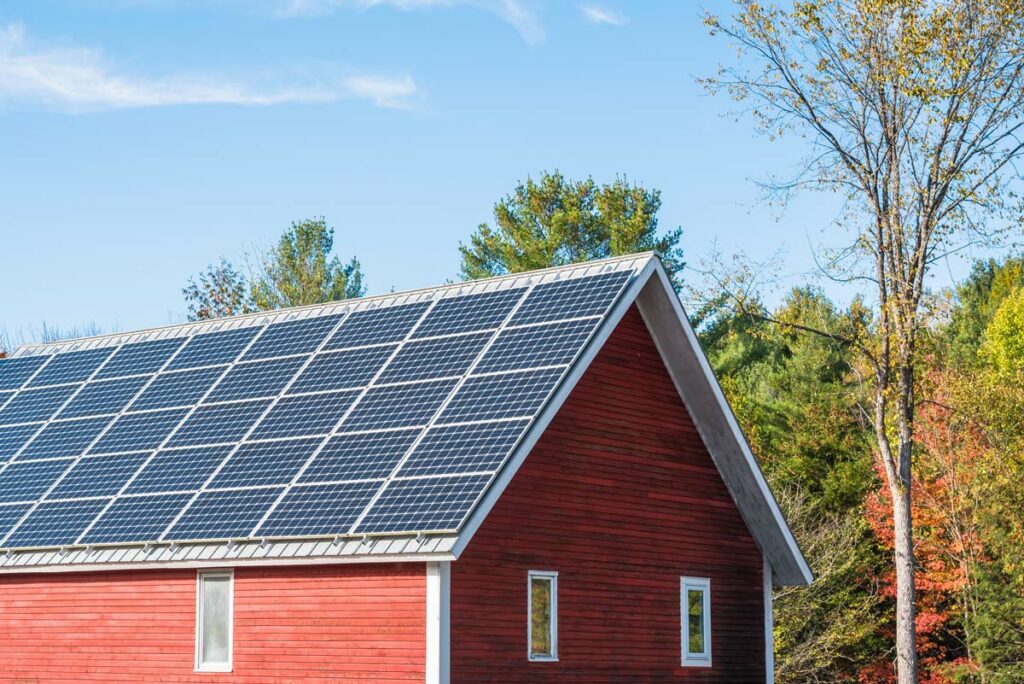
Embracing Sustainable Energy: Solar, Wind, and More
Off-grid living requires a solid understanding of reliable and renewable sources of power to sustain your lifestyle such as solar energy, wind turbines, and other powered generators.
- Solar Energy – Solar energy is a popular choice for off-grid living due to its abundance, reliability, and environmental benefits. By harnessing the power of the sun, you can generate electricity to power your home and meet your energy needs. Solar panels convert sunlight into usable electricity and are an excellent investment for long-term sustainability. They require minimal maintenance and can provide power even on cloudy days.
- Wind Energy – Another viable option for sustainable energy is wind turbines. By harnessing the power of the wind, you can generate electricity to power your off-grid home. Wind turbines are particularly beneficial in areas with consistent wind patterns. They can complement your solar energy system and provide a reliable source of power when the sun is not shining.
- Other Powered Generators – In addition to solar and wind energy, there are other powered generators you can consider for off-grid living. These include hydroelectric generators, biomass gasification systems, and even portable generators powered by renewable fuels. Each option has its unique benefits and considerations, and it’s essential to assess which one aligns best with your energy needs and location.
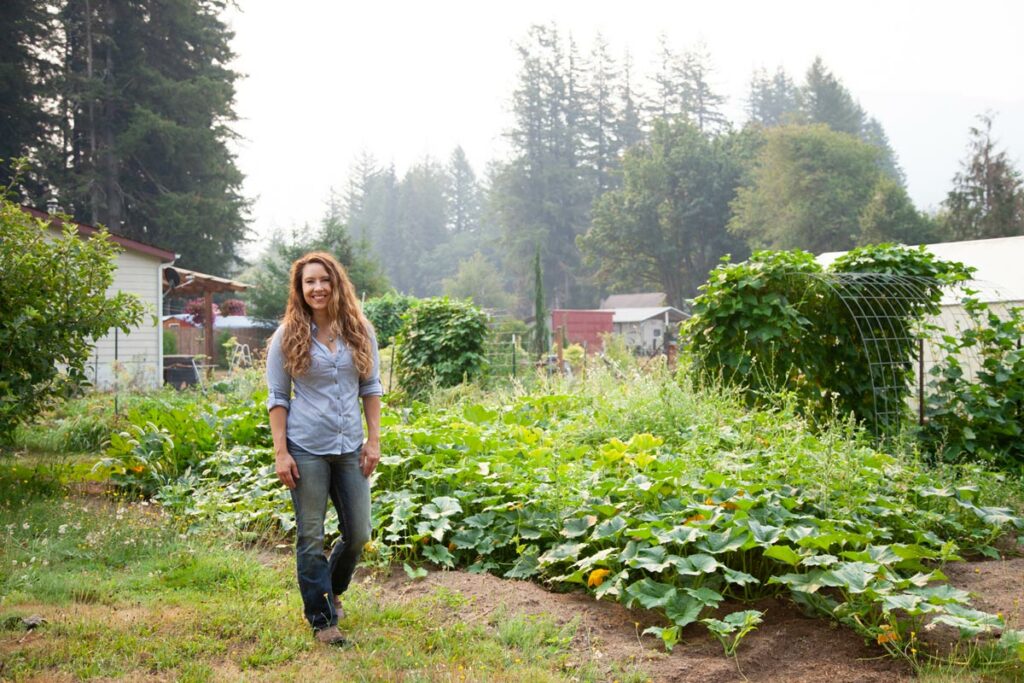
Growing Your Own Food
Cultivating your own food is essential to off-grid living, allowing you to save money, increase self-sufficiency and create a more sustainable life.
The Benefits of Organic Gardening
Starting an organic garden goes beyond simply growing food without synthetic fertilizers or pesticides. It is a holistic approach that nurtures the soil and promotes biodiversity, resulting in healthier plants and nutrient-dense produce.
By avoiding harmful chemicals and focusing on natural pest control methods, such as companion planting and beneficial insect habitats, you can create a safe and sustainable environment for your food to flourish.
Organic practices also contribute to preserving the ecosystem and protecting pollinators, ensuring the long-term health of your garden.
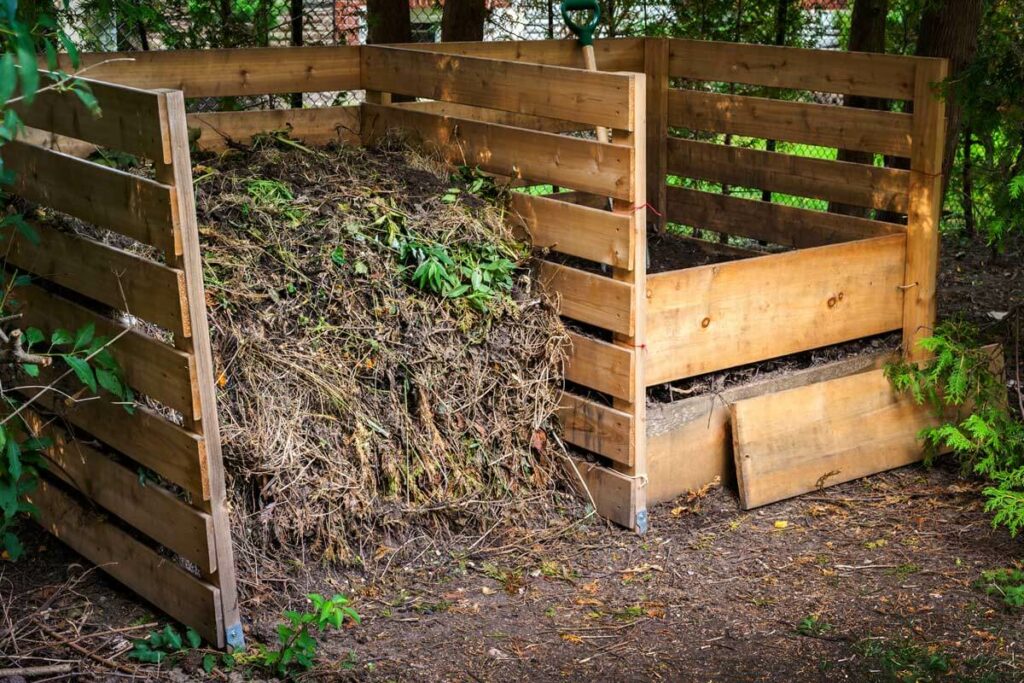
Composting: Nature’s Recycling System
Composting is a fundamental part of sustainable gardening and off-grid living. It involves transforming organic waste, such as kitchen scraps and garden trimmings, into nutrient-rich compost that can be used to enrich the soil.
By composting your organic waste, you not only reduce the amount of waste sent to landfills but also create a valuable resource for your garden. Compost provides essential nutrients, improves soil structure, retains moisture, and promotes beneficial microbial activity, resulting in healthier plants and increased yields.
Alternative Waste Disposal Methods: Composting Toilets
Composting toilets are a sustainable and eco-friendly solution for waste management in off-grid homes. These toilets use a natural decomposition process to convert human waste into compost, eliminating the need for water-intensive flush toilets or septic tank systems.
Composting toilets separate solid and liquid waste, allowing for more efficient decomposition. The resulting compost can be safely used in non-edible areas of your garden, contributing to soil fertility and closing the nutrient cycle.
By integrating composting toilets as your sewer systems into your off-grid lifestyle, you can minimize your ecological footprint and significantly contribute to the sustainability of your living environment.
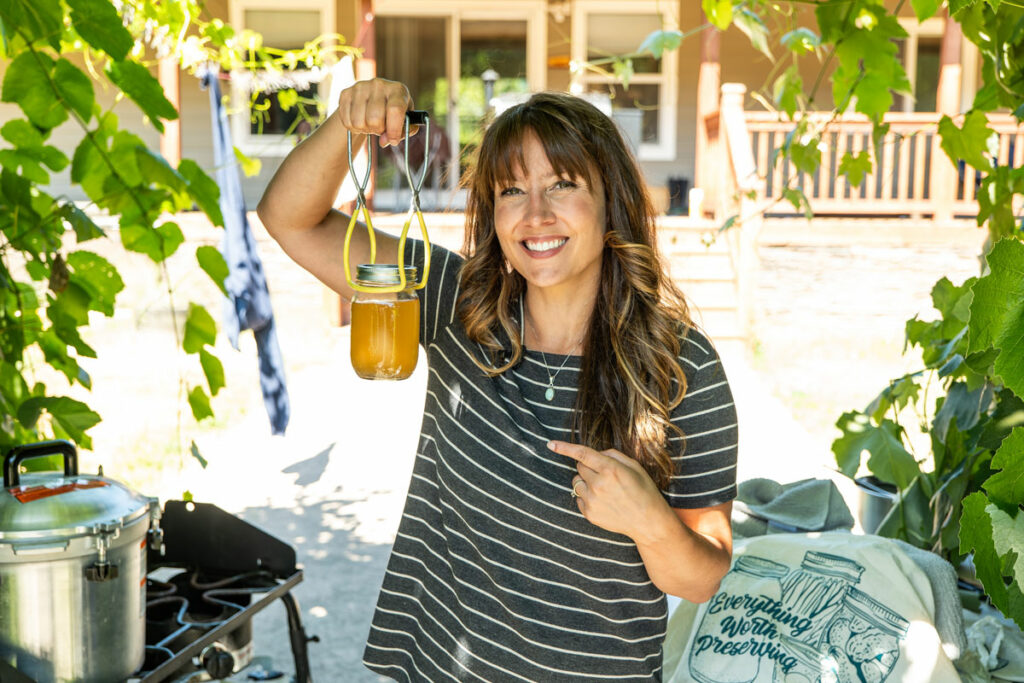
Food Preservation Off the Grid
I have a bucket list with hopes and dreams to add to our homestead; a root cellar is one of them. I am fascinated with the idea that the earth can become a place to store foods long term and effectively.
Basically, a root cellar is an underground storage area dug into the ground and lined with various materials like concrete, brick, rock, wood or insulated foam. You’ll want to ensure you don’t have a high water table, or you could end up with a swimming pool instead of a root cellar.
Like an old-fashioned refrigerator, the Earth’s constant temperature moderates the root cellar’s high humidity and low interior temperature. Pest control, depending on where you live, can be a challenge, but what homesteader isn’t up for a good challenge? Right friends?
There are so many ideas out there on the web touting ways to effectively build a proficient root cellar, and I am all in when it comes to planning and building one for our homestead. Our food storage areas are limited, and I’ve used every spot I can think of, so a root cellar is next on the list. But for now, I’ve learned how to store vegetables with a root cellar.
I love it because root cellaring is such an old-fashioned self sufficient, pioneer way of food preservation. Using a root cellar is a great shelf-stable way to keep many of your root veggies without nearly the amount of work other preservation methods take.
When living off the grid, power through electricity is not one you consider for mass food preservation. Canning using propane with an outside kitchen, dehydration (sun-powered) and fermentation are some of your options. While it can be done with solar panels and batteries, it‘s not as cost-effective as a root cellar.
Root cellars keep the temperature constant for a garden filled with beets, potatoes, squash, carrots, shell beans, parsnips, cabbage, onions and tomatoes. Now, that’s a lot of food to keep a family fed for a year.
Adapting your garden for root cellar storage is key for what your family eats. I think it’s really important to recognize, grow and garden specifically for your family. Grow crops specific to your climate and soil type. You don’t want to constantly baby your crops and fight it. Make it work for you!
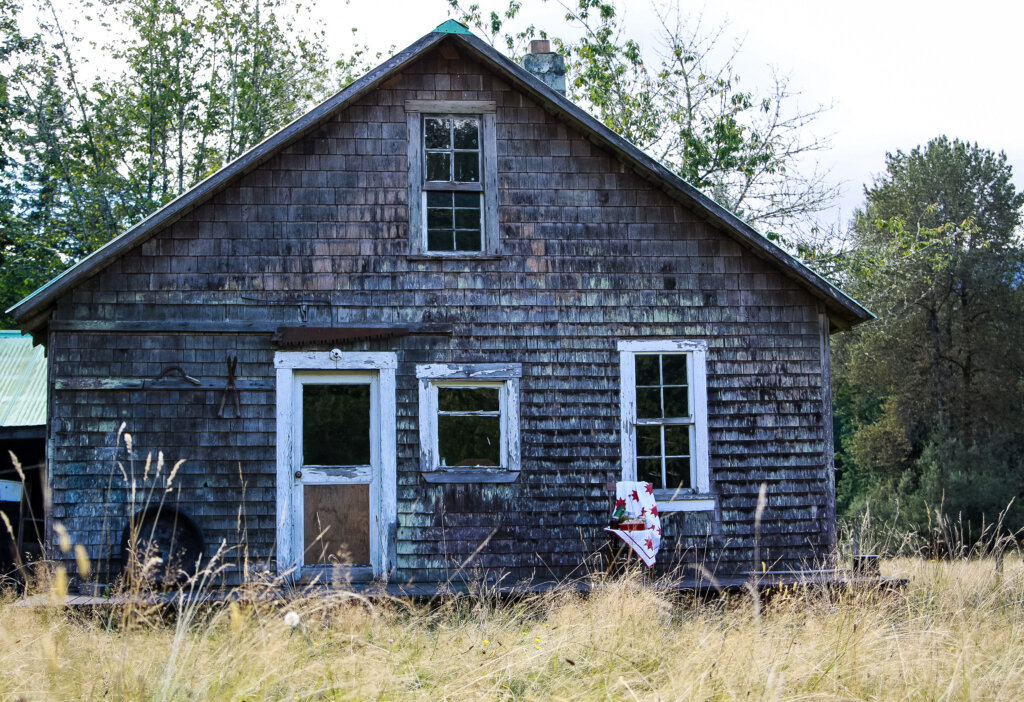
Building and Living in an Off-Grid Home
When it comes to off-grid living, many aspire to design and build their own home. This will differ from traditional housing on the grid, and you should consider the various aspects of building and living in an off-grid home.
- Sustainable Building Materials – If using sustainable materials that have a minimal impact on the environment is one of your priorities, opt for locally sourced, renewable resources such as reclaimed wood, bamboo, or straw bales for construction. These materials reduce carbon footprint and add natural beauty to your home.
- Energy-Efficient Systems – An off-grid home requires energy-efficient systems to optimize resource consumption. Incorporate solar panels and wind turbines to harness renewable energy. Efficient insulation and high-quality windows will help regulate temperature and reduce the need for heating or cooling. Additionally, consider learning how to cook on a wood stove so it can double for heating and cooking.
- Reliable Water Supply Solutions – An essential aspect of off-grid living is ensuring a reliable and potable water supply. Explore rainwater harvesting systems, which collect and store rainwater for domestic use or a hand water well pump. Install efficient filtration and purification systems to ensure the water is safe and suitable for consumption.
| Off-Grid Home Option | Advantages | Disadvantages |
| Tiny Home | Compact and space-efficient. Lower construction and maintenance costs | Limited space for storage and living. Minimal privacy |
| Earthship | Thermal mass for natural heating and cooling. Utilizes recycled materials | Complex construction process. May require specific building permits |
| Yurt | Portable and adaptable. Cost-effective option | May require additional insulation for extreme climates. Limited space for permanent fixtures |
Each off-grid home option has its unique advantages and considerations. Choose the one that aligns with your lifestyle and requirements, ensuring a comfortable and sustainable living environment.
Navigating Local Laws and Community
Living off the grid comes with the responsibility of understanding and adhering to local laws and regulations. It’s important to make sure that your off-grid lifestyle aligns with the legal requirements of the community you reside in.
Consider these tips to build strong relationships among your neighbors to foster community sufficiency.
- Research Local Laws – Thoroughly research the laws and regulations specific to your area. Familiarize yourself with zoning restrictions, construction permits, waste disposal regulations, and any other relevant rules that may apply to off-grid living.
- Seek Legal Advice – If you have any uncertainties or unanswered questions regarding local laws, consult a lawyer specializing in sustainable living and off-grid practices. They can provide valuable guidance and help you navigate through legal complexities.
- Open Communication – Initiate open and transparent communication with local authorities, neighbors, and community members to establish a positive rapport. Share your intentions, explain the benefits of off-grid living, and address any concerns they may have.
- Community Involvement – Engage in community events, volunteer initiatives, and support local businesses. Building strong connections within your community will help you integrate better and create a support network of like-minded individuals.
- Respectful Living – Show respect for the environment and community by adhering to responsible and sustainable practices. Minimize noise pollution, maintain your property’s appearance, and offer assistance and cooperation whenever possible.
Whether you embrace living fully off-grid or incorporate a few of these principles into your homesteading journey, it is a conscious choice to prioritize simplicity, self-reliance, and environmental stewardship.
It offers resilience in the face of challenges and the satisfaction of knowing that you are reducing reliance on external resources. So, if you aspire to live a sustainable life and create a positive impact, why not begin your off-grid journey today?
Resources
Episode #143
Where to find Teri:
Verse of the Week – Luke 24:45
Episode #183
Where to find Doug & Stacy:
Verse of the Week – Romans 12:11
Other Posts You May Enjoy
- How to Buy a Homestead – What to Look For
- What to Look For When Purchasing a Homestead
- 11 Ways to Cook Off-Grid Without Power
- How to Cook on a Wood Stove
- How to Use a Generator
- What to do When the Power Goes Out
- How to Keep Your House Cool in Summer Without Air Conditioning
